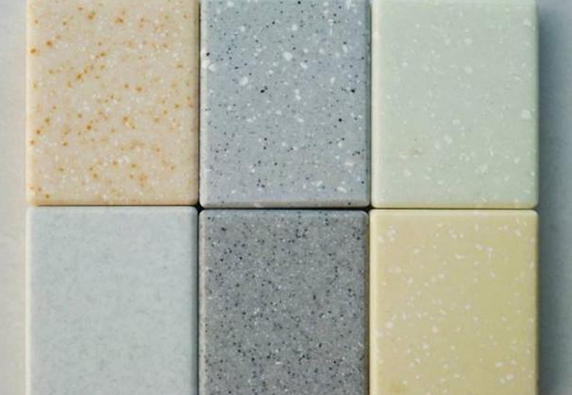
Artificial stone materials are becoming increasingly popular in the construction and decoration industry, offering an attractive, durable, and customizable option. This article will explore the three main types of artificial stone: solid surface materials, engineered quartz, and engineered granite, and introduce their advantages and applications in different fields.
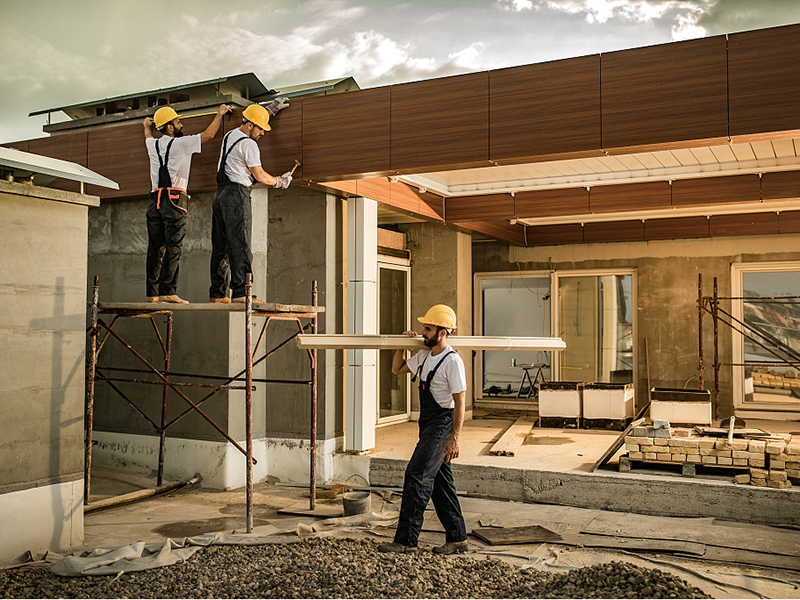
solid surface:
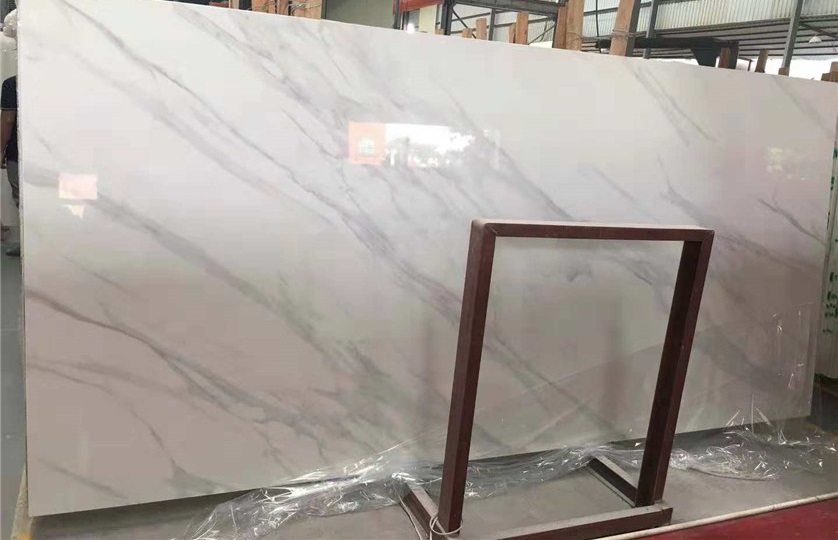
Solid surface materials are composite materials made by mixing aluminum powder and resin. They have the following characteristics:
Appearance and Texture: Artificial marble can accurately simulate the appearance and texture of natural marble, including its patterns and colors.
Durability: Due to high-temperature and high-pressure treatment, artificial marble exhibits high durability and is resistant to scratches and abrasion.
Easy Maintenance: The smooth surface of artificial marble makes it easy to clean and maintain.
Customizability: Artificial marble can be customized according to customer requirements, catering to various design styles.
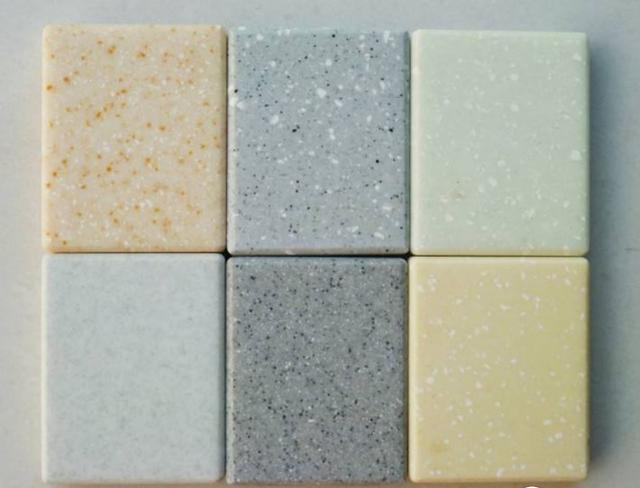
Application Fields:
Artificial marble is widely used in the field of interior decoration, such as countertops, flooring, wall cladding, washbasins, and more. Its attractive appearance and durability make it an ideal choice for hotels, commercial office spaces, and residential projects.
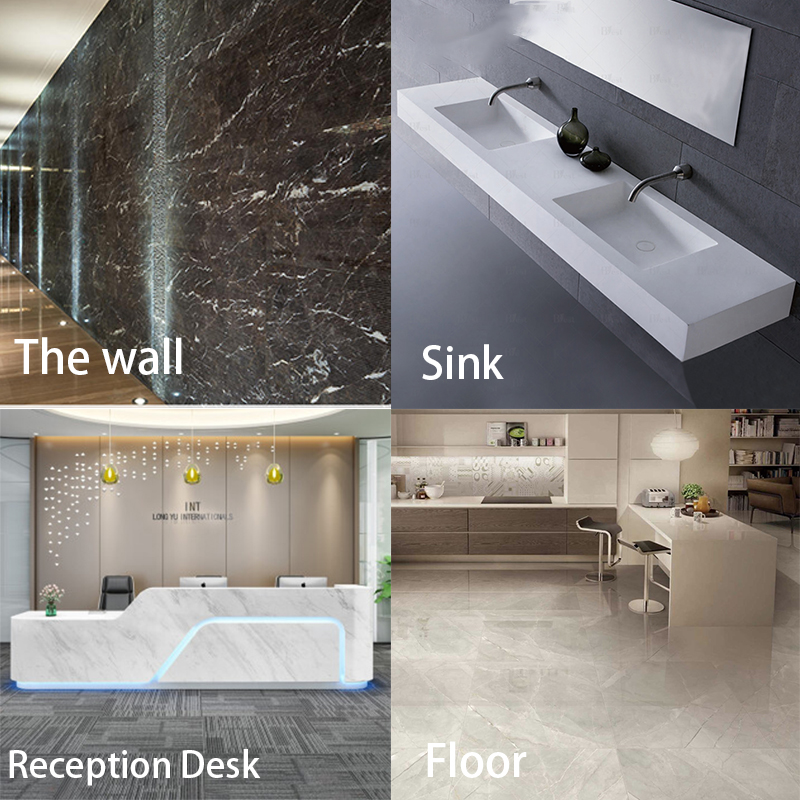
Quartz marble:
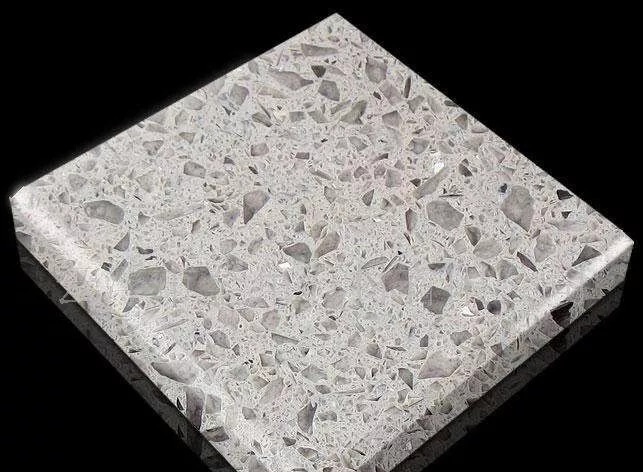
Quartz marble is a material made by mixing natural quartz particles, resin, and color additives. It possesses the following characteristics:
Strength and Durability: Engineered quartz is highly robust, resistant to wear, high temperatures, and chemical corrosion.
Hygienic: The smooth and non-porous surface of engineered quartz makes it resistant to bacterial growth, easy to clean, and maintain.
Versatility: Engineered quartz can achieve diverse design effects by adding different colors and textures.
Stain Resistance: Engineered quartz exhibits high stain resistance, making it difficult for food, beverages, and cosmetics to penetrate its surface.
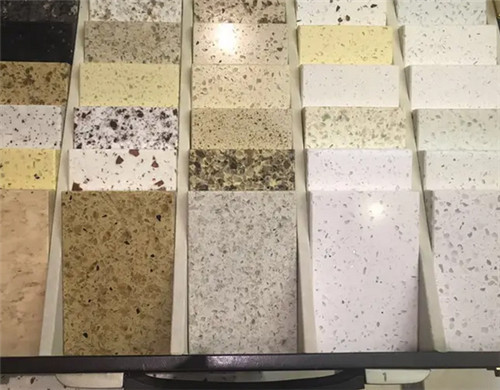
Application Fields:
Engineered quartz is widely used in areas such as kitchen countertops, bathroom vanities, laboratory worktops, and more. Its superior performance makes it the preferred material for locations that require high strength, durability, and hygiene.
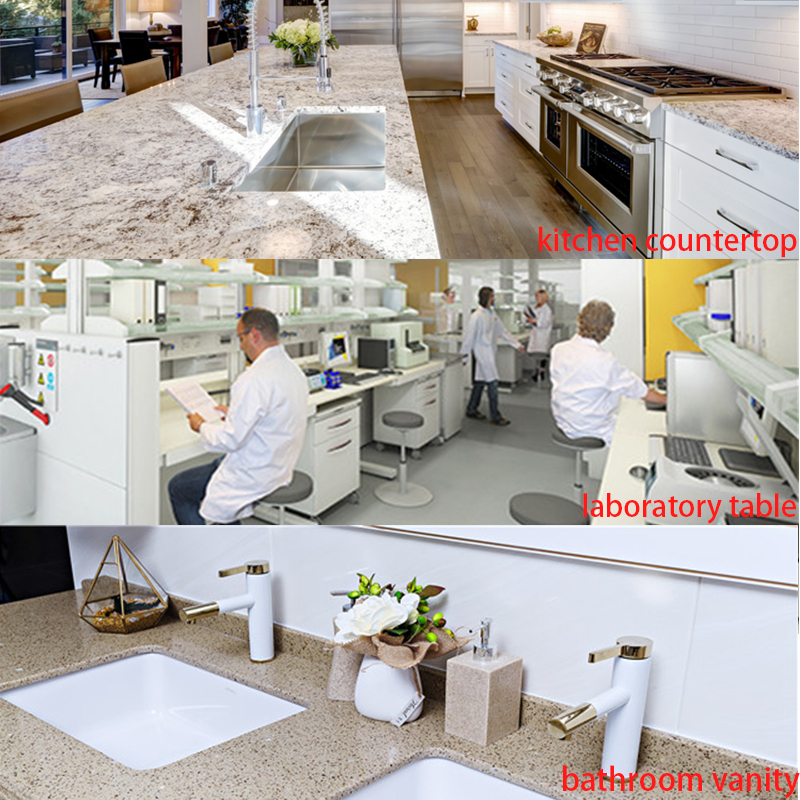
Engineered Granite:
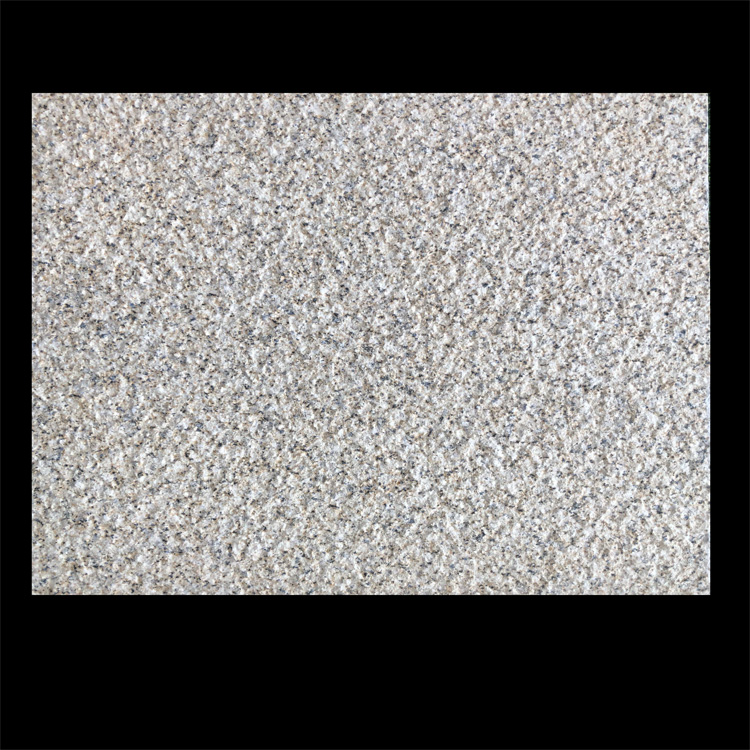
Engineered granite is a material made by mixing natural granite particles, resin, and pigments. It possesses the following characteristics:
Natural Aesthetics: Engineered granite exhibits unique textures and colors similar to natural granite, adding a sense of natural beauty.
Durability: Engineered granite demonstrates excellent resistance to wear and scratches.
Customizability: Engineered granite can achieve different colors and textures by adjusting the proportion of pigments.
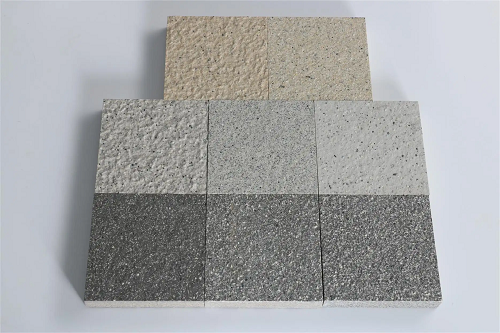
Application Fields:
Engineered granite is primarily used in areas such as kitchen countertops, flooring, and decorative wall surfaces. Its natural aesthetics and durability make it the preferred choice for individuals seeking high quality and longevity.
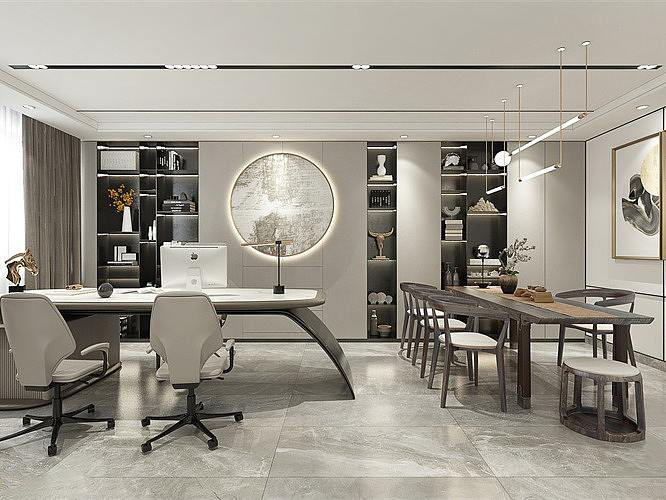
Artificial stone materials provide a variety of choices for use in construction and decoration. By understanding the characteristics and application fields of artificial marble, engineered quartz, and engineered granite, we can select the most suitable material based on specific needs. Whether it is for achieving natural aesthetics, durability, or hygiene, artificial stone materials can meet the requirements of different projects, providing aesthetically pleasing and practical solutions for interior design.
- Blog Categories
- Industrial Knowledge
 WANBEST
WANBEST

















 WANBEST
WANBEST